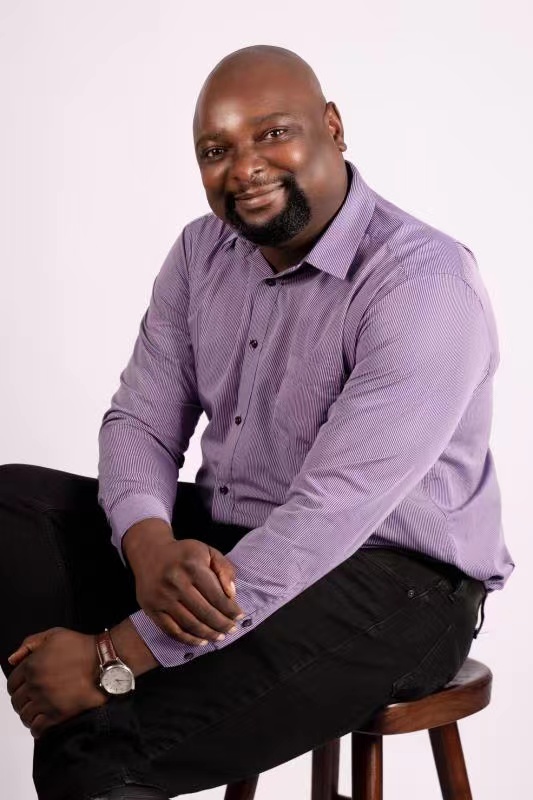|
||||||||||
| Home Nation World Business Opinion Lifestyle ChinAfrica Multimedia Columnists Documents Special Reports |
|
||||||||||
| Home Nation World Business Opinion Lifestyle ChinAfrica Multimedia Columnists Documents Special Reports |
| ChinAfrica |
| Double Take | How Do You See Procrastination? |
| The Double Take column looks at a single topic from an African and Chinese perspective. This month we discuss how people handle procrastination. |
| Man Yiman & Milton Chitatariso VOL. 13 DECEMBER 2021 ·2021-12-02 |

An Insurmountable Problem
Man Yiman
A 33-year-old bond investment manager in Beijing
I have been working in a securities company since graduating from college in 2012 and my responsibilities include trade, research and investment. It is a job that doesn’t have much room for procrastination. Each day by 9:30 am, when the market opens, I must have all the market information and trade data ready; and by 3:00 pm, trade must by arranged before the market closes – even one second of delay is unacceptable. One may think that after so many years of working with this schedule, I would by no means be a procrastinator.
Unfortunately, this strict adherence to schedule doesn’t automatically extend to the rest of the day. In terms of executing plans for myself, such as reading a great book, joining a training session or taking a professional qualification test, I am a hopeless example of what typical procrastination is like. It is a recurring cycle that usually starts with a list of big plans at the beginning of the year, and ends with regrets and sighs at the end of the year. The worst example is that I put a professional qualification test on my schedule for three years before I finally took it. I am so used to being a procrastinator that I sometimes just avoid making plans.
I think a big problem for me is that I can always find excuses to convince myself that I can do it later, such as my job is busy enough, it is tough for a pregnant woman, or I am exhausted from taking care of the kid. I admire my friends who have self-discipline, and wonder how they manage to find the time for what they do. One of them got an MBA using spare time over a span of two years. Maybe the key for me to overcome procrastination is to stop fooling myself with excuses.
Now that I am in my early 30s, I inevitably feel anxious, especially when I see young people entering the job market, and read stories about the mid-life crisis. I am angry with myself for hiding in the comfort zone and refusing to make a change.
It is about time to plan for the next year. This time I want to be realistic and make some small plans. I think it is better for me to do something that I like and can complete it than to regret at the end of next year. I may never overcome procrastination, but at least this way I can be less anxious. Wish me luck.

A Bad Habit
Milton Chitatariso
A-39-year-old Zimbabwean student in Guangzhou
I used to be a master procrastinator. I would procrastinate as much as I possibly could as a student. I would do big projects the night before they were due and homework assignments the morning they were due. When I was younger, I didn’t think much of it. I still received good grades in my classes, so why did it matter when I completed the task? Well, when I moved into college, I was trying to balance my studies, a part-time job and a social life. Then, I realized why good productivity habits are important.
During my first year of college, I really struggled and even got a few low scores. Looking back, I can tell you exactly why. I was on my own for the first time in my life, living without my parents. There was no one to tell me to go to bed or to do my homework or, maybe the worst part, when to wake up. I accidentally missed a few morning lectures because I had a problem waking up early in the morning on my own. I would stay up late watching YouTube or Netflix on my laptop and nobody was there to tell me otherwise.
At the end of my freshman year, my school counselor set an appointment with me. She told me that my attendance in class and low marks made her concerned. I knew at that point, I had to change my ways. From my sophomore year on, I became a better student. Obviously, this was not an overnight change. I had to develop new habits to not only become a better student, but also to live a better life.
Here are a few methods I used and still use to be productive. First of all, make a to-do list of small tasks. Instead of trying to study for entire math exam nonstop, give yourself just one hour for math study at a time. Therefore, when the hour is up, you are able to take a break and refresh your mind. For big tasks, break it up into manageable sections.
It is also helpful to reward yourself for completing the tasks. Once I finish this, I can play on my phone for 20 minutes. Or after I complete my English homework, I can play my game. This way, you have something to look forward to and encourage yourself to finish your work.
As one scholar said, “Replace excuses with effort, laziness with determination, and everything else will fall into place.”
| About Us | Contact Us | Advertise with Us | Subscribe |
| Copyright Beijing Review All rights reserved 京ICP备08005356号-5 京公网安备110102005860号 |